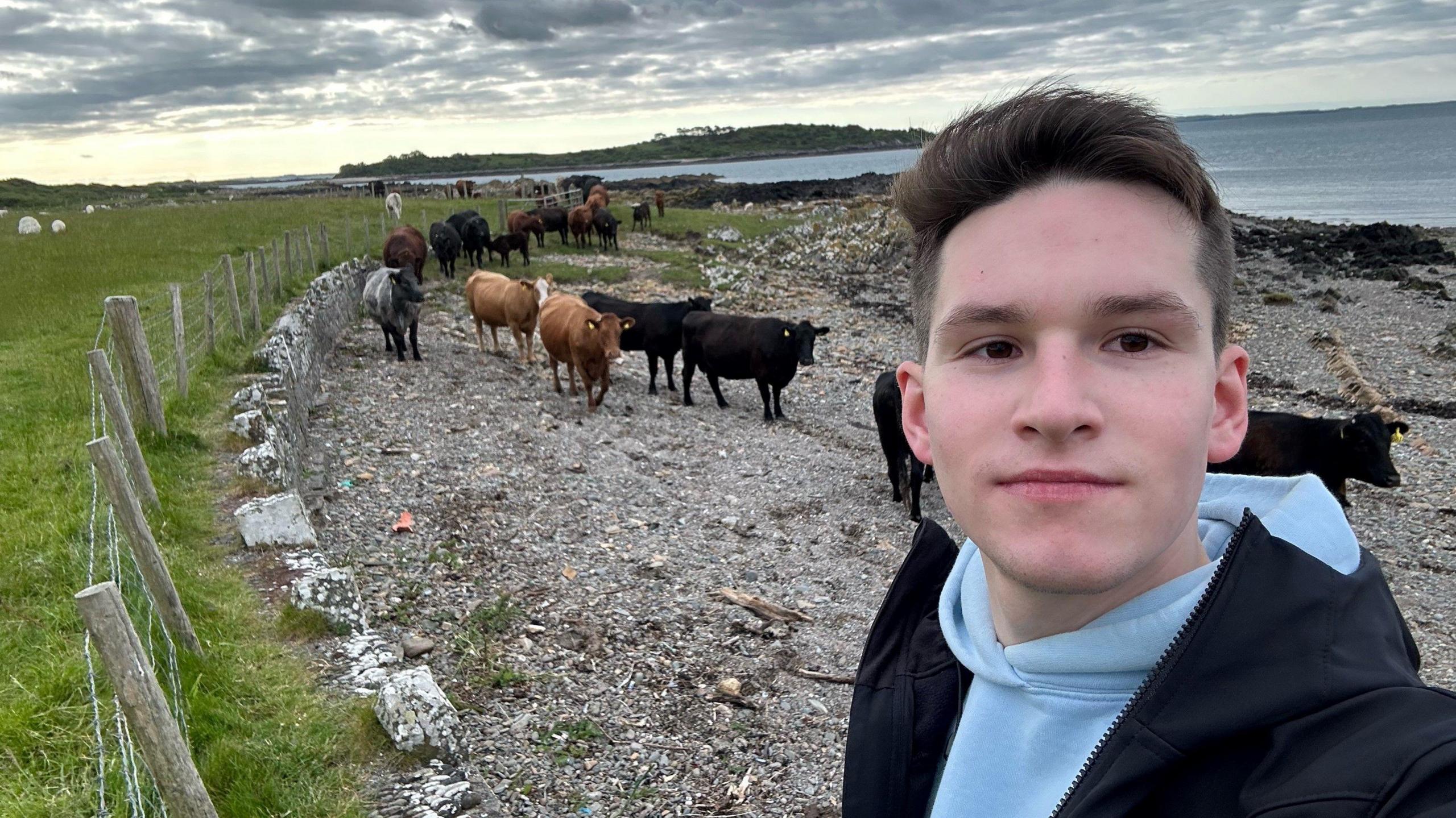Veterinarian: 'I drank to numb the emotional pain'
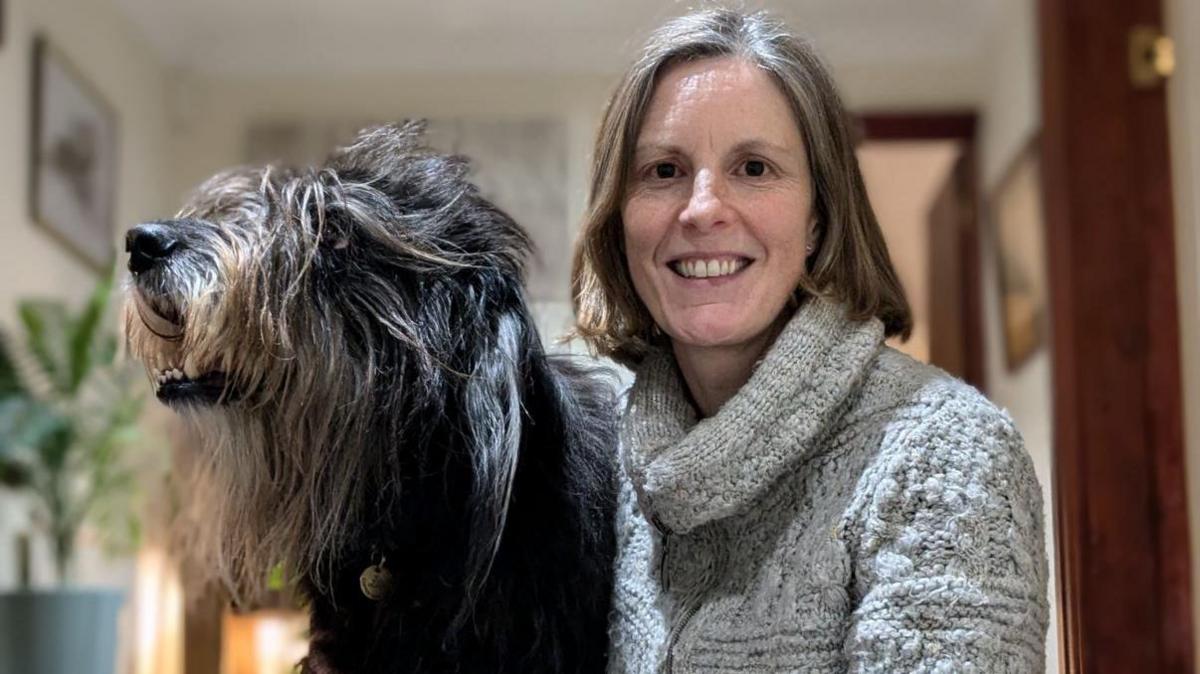
Kirstie Pickles said the stresses of being a vet once led her to turn to alcohol for "emotional support"
- Published
"I used alcohol as an emotional crutch."
Kirstie Pickles has not had a drink in 13 years, but the day-to-day stresses of being a veterinarian once led her to turn to alcohol for "emotional support" and to numb the pain.
"It’s when you put your recycling out and you’re embarrassed about it that you realise that’s probably not normal," she says.
A recent study by Oxford Brookes University found that drinking was a coping mechanism for many vets, and that there was an entrenched drinking culture within the profession.
It suggested alcohol use was "normalised from veterinary school through to professional life".
This made it difficult for vets to recognise problem drinking as an issue, since it was "embedded in the profession's social norms".
'Pressure cooker'
Kirstie, from Derbyshire, tells me she always wanted to be a vet.
"At 10 or 11 I decided I wanted to work with animals, and that's not uncommon... people decide from a very young age that that's what they want to do, and become quite fixed on it."
She landed a place on a competitive university course and gained experiences at vet practices, at an abattoir, and on farms, but it was still a "sanitised view", she says.
"You might hear vets swear, or get stressed, but you're never going to appreciate the full extent of what being a vet is, what being on call is like."
If you have been affected by any of the issues in this story, help and support is available from the BBC Action Line.
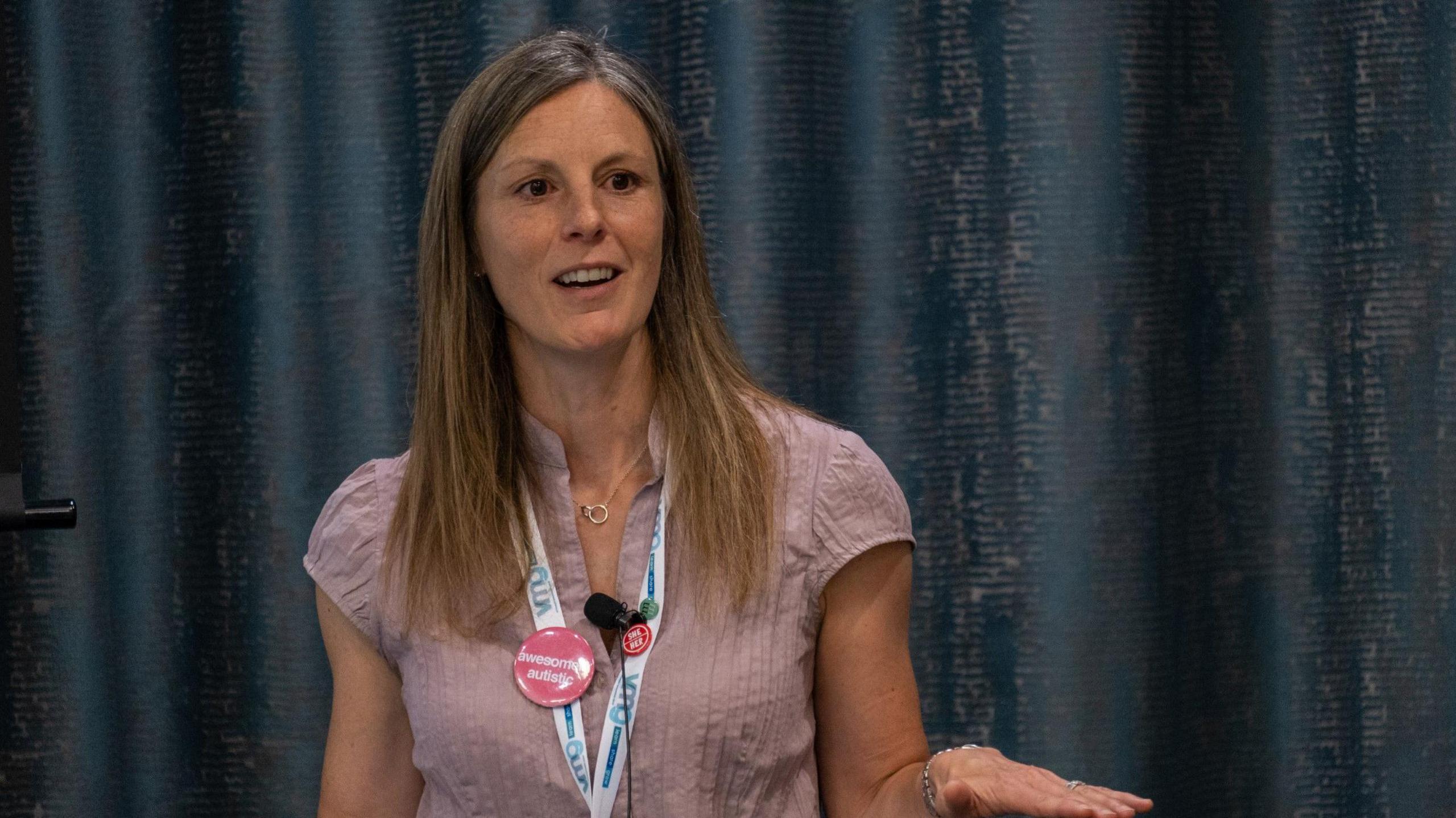
Kirstie now focuses on helping others affected by mental health and neurodiversity within the veterinary sector
When she recounts the most stressful parts of the job, she says: "Attached to every animal is a person."
"The client may not be able to afford the procedure, so that can be extremely stressful," she continues.
"There's moral injury when you're confronted with a sick animal that needs treatment and tests, and they cost money, and the client can't afford it.
"Euthanasia may then have to be an option."
She recalls the dilemmas she faced in equine medicine, such as when a horse might require abdominal surgery costing thousands of pounds.
"The only other option in that situation often is the horse has to be put to sleep," she says.
"So these are not easy situations to navigate."
She also says vet surgeries could feel akin to working in a "pressure cooker".
"You can have difficulties with colleagues, because everyone's working in a fast-paced stressful environment dealing with life and death situations. That can take its toll."
'Burn out'
She remembers vet school as a "work hard, party hard environment", and later how people would drink heavily and "blow off steam" at conferences.
But eventually she found herself drinking large quantities of wine at the end of each working day.
"It became something I did to numb emotional pain," she says.
Kirstie was checked into an inpatient psychiatric facility following a suicide attempt and had to undergo surgery, an experience she found "absolutely terrifying".
"I just thought I can't carry on doing this, I'm going to be dead if I continue doing this, and at that point I made the choice to stop."
Dr Jennifer Seddon, the senior lecturer in psychology who carried out the recent study, says there are "high rates of burn out" associated with the veterinary profession.
She says vets' mental health is "much poorer in comparison with people in the general population" but professionals are "fearful" about the potential implications to their career, and alcohol-related stigma.
She says "more open and honest conversations" and a "more supportive workplace environment" are needed.
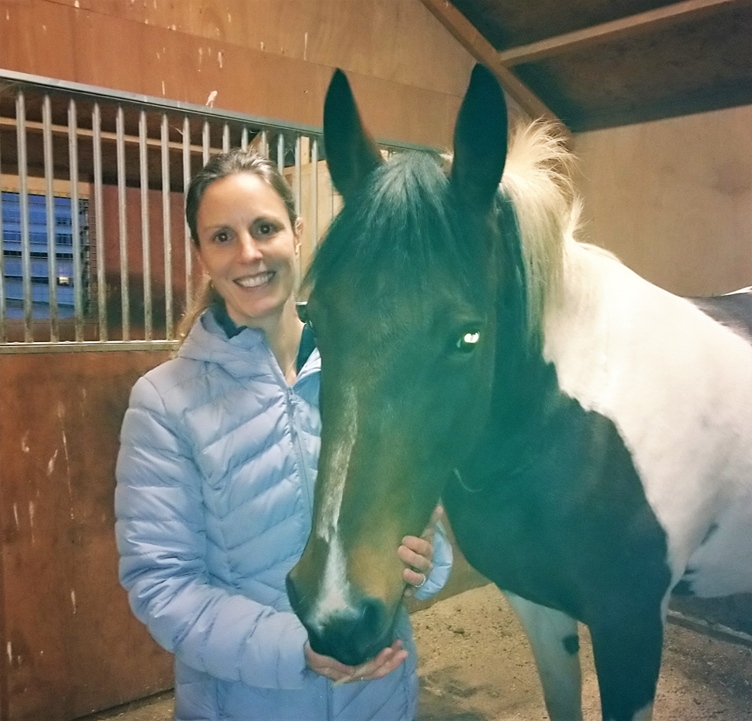
Kirstie says she faced dilemmas when it came to equine medicine, which can cost thousands of pounds
Kirstie discovered she was autistic in her 40s, and has since developed "healthy coping strategies" to deal with her anxieties.
These involve exercise, and she says running with her dog in the hills is her "happy place".
She now divides her time between being the equality, diversity, and inclusion lead at Harper & Keele Veterinary School, and running Unedited Minds, a training business concerned with mental health and neurodiversity, mostly within the veterinary sector.
"I became focused on using my experience to help other people and that's rewarding for me," she says.
In a statement, the Royal College of Veterinary Surgeons says it encourages vets to seek treatment for poor mental health and addiction problems, which are not a cause for disciplinary action in themselves.
It adds: "The public and their animals are much better served by veterinary professionals who are healthy and able to practise to the best of their abilities."
It also says it is providing funding to the Vetlife and Vet Support charities, as part of its Mind Matters Initiative, a project that "aims to improve the mental health and wellbeing of those in the veterinary team".
Get in touch
Do you have a story BBC Oxfordshire should cover?
You can follow BBC Oxfordshire on Facebook, external, X (Twitter), external, or Instagram, external.
Related topics
Related links
- Published25 November 2024
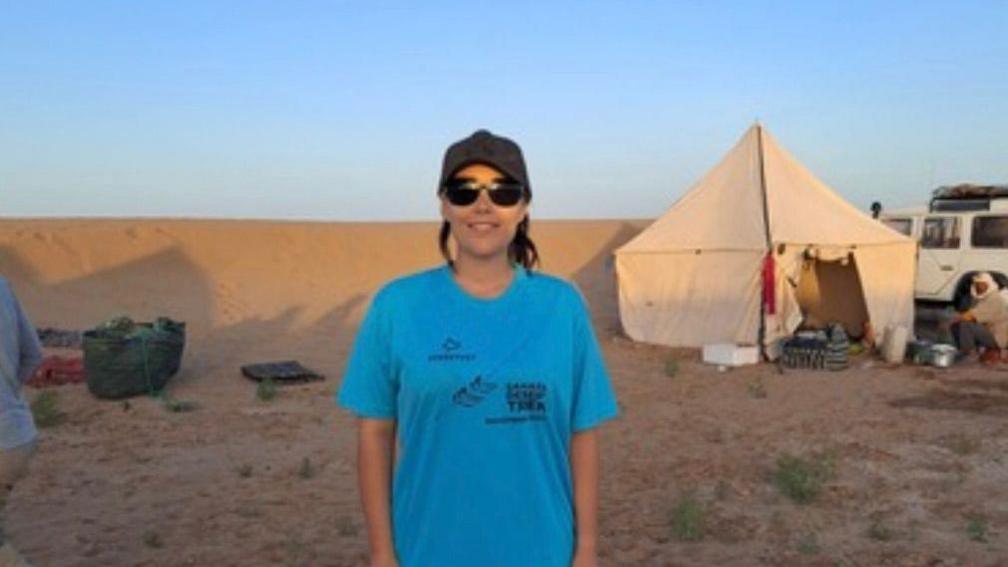
- Published18 November 2024
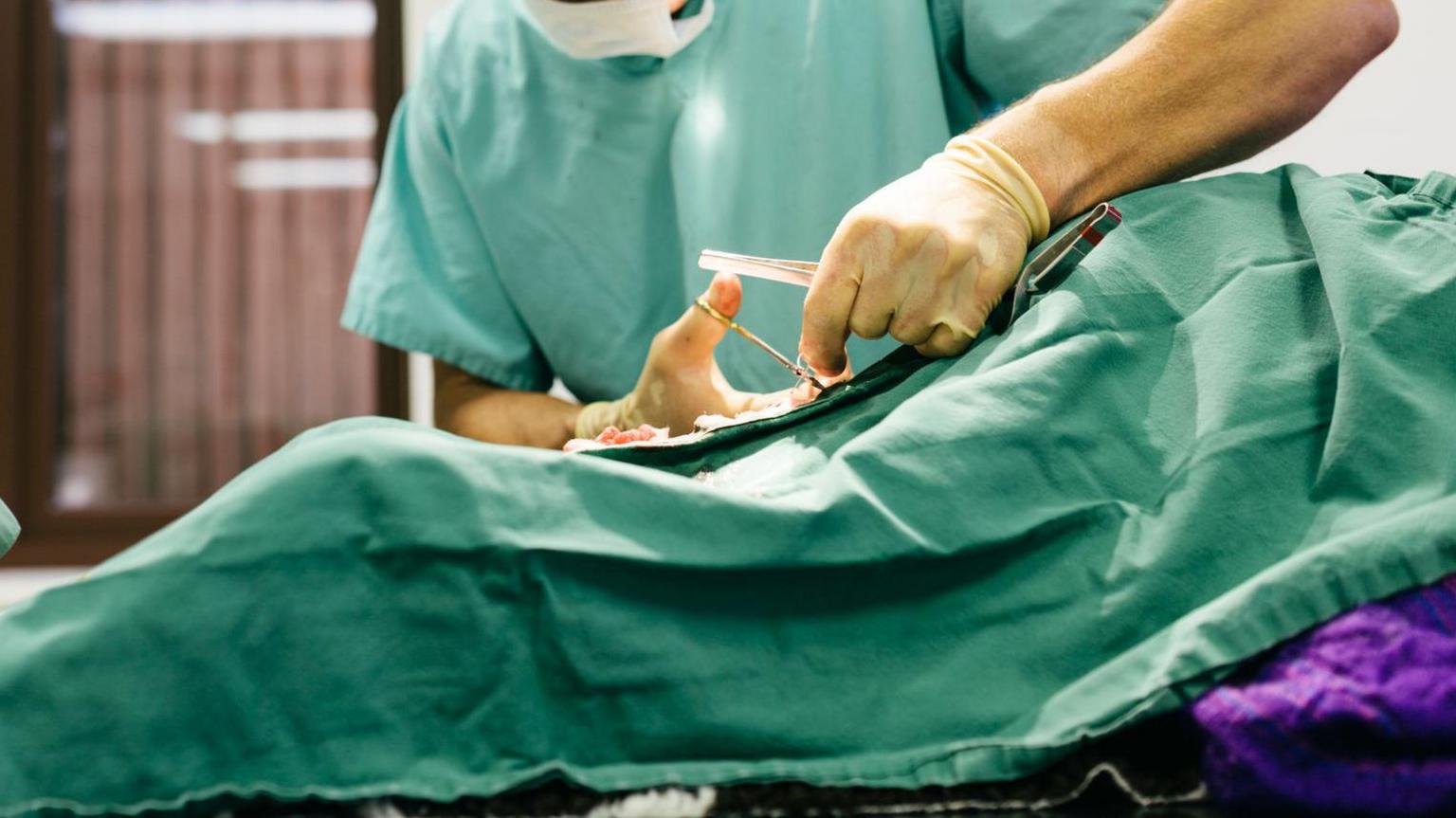
- Published31 July 2024
